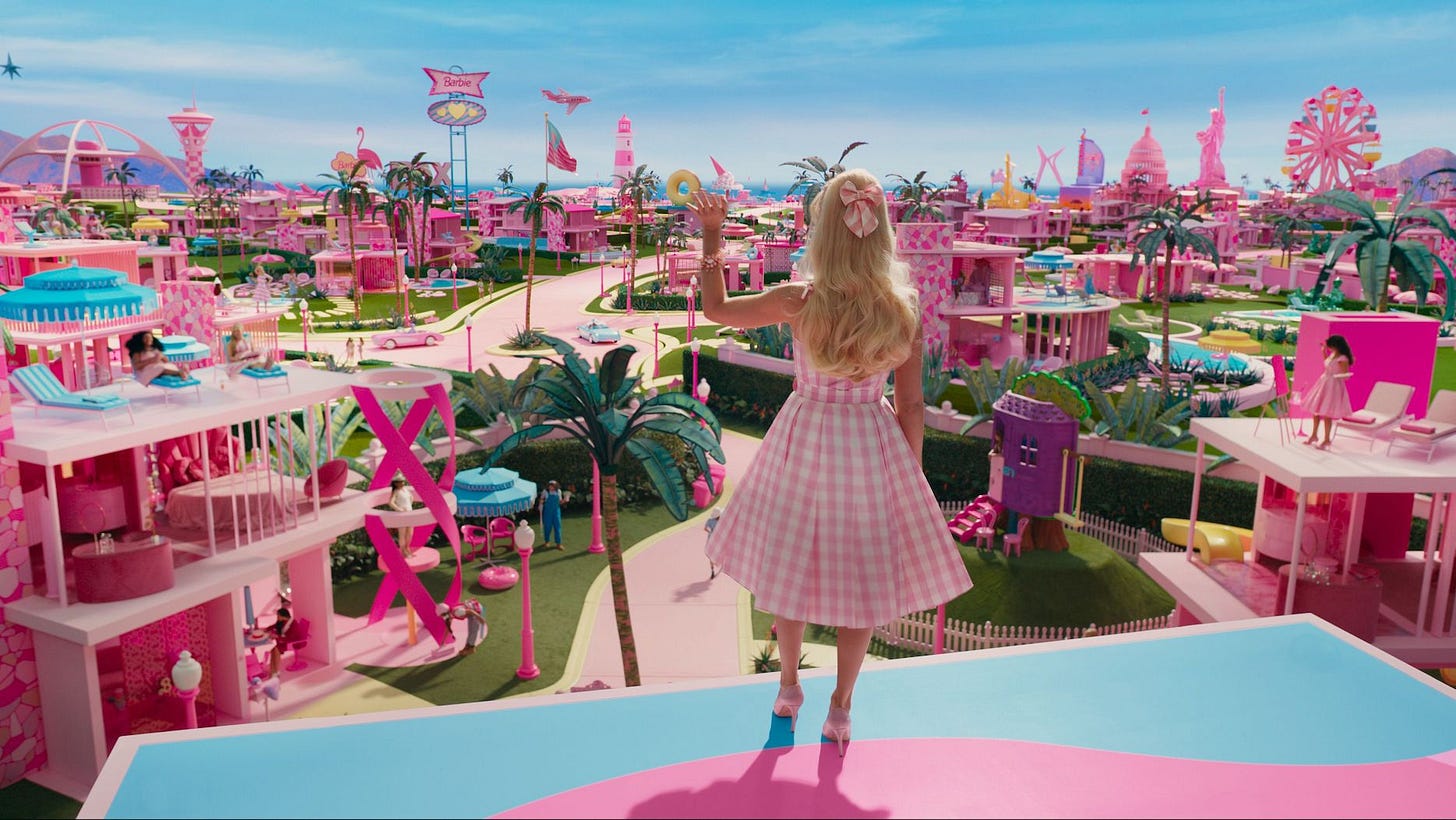Givenness in the Barbie Movie
Is Greta Gerwig making a conservative point?
A couple weeks ago, I published a short Twitter thread on some thoughts on the surprisingly conservative themes in the Barbie movie. Peter Leithart reached out to me to ask if I could collect those thoughts into a proper review for Theopolis. Below is a teaser, but you can read the full piece here.
Review: Barbie
Greta Gerwig’s new film, Barbie, has been criticized, probably rightly, for having too many ideas and layers to properly bring in any for a landing. Gerwig herself thought the script was so “wild and anarchic” that she was surprised WB agreed to make it. Many see it as yet another feminist screed against the patriarchy, another entry into an endless parade of stories about repressed women who need to girl-boss their way through the patriarchy into self-actualization. And it is precisely because there is no one concrete through-line that so many viewers saw just that, or some variation of it. But I would contend that, despite the explicitly feminist frame of Barbie, Gerwig has offered us a refreshing departure from the standard girlboss fare and made an essentially conservative point: that the path out of our sexual disorientation is to embrace our design, givenness, and time-boundedness.
In Barbie Land, women run everything. All work, meaningful and menial, is Barbie work, and every night is girls’ night. The Kens are accessories, existing only to be pretty and smile and wave, happy only when the Barbies smiles back. Every doll in Barbie Land has a Real World little girl owner, whose actions and emotions in the Real World can influence their Barbie back in Barbie Land. “Weird Barbie”—with singed and chopped hair, marker-stained face, and permanently in the splits—was played with too hard by her Real World owner.
Our Barbie, Margot Robbie’s Stereotypical Barbie, has lived an uneventful Barbie life of sparkles and parties, when her life takes an unexpected turn: her feet go flat, a spot of cellulite forms, and she is having thoughts of dying. To stop herself from malfunctioning, she must travel to the Real World to find and cheer up her owner. A vision of a little girl playing Barbies with her mother guides her to a middle school, and to the little girl, Sasha, now a glum teen. She expects to be welcomed with open-arms for being the little girl’s Barbie come-to-life, and for empowering little girls everywhere, but Sasha rebuffs her with the truth: Barbie is responsible for setting unrealistic standards for feminine beauty, for destroying girls’ innate sense of worth, and for fueling sexualized capitalism (the irony of Barbie being produced by Mattel is not lost on Gerwig, who takes every opportunity to poke fun at the corporate men running the company).


